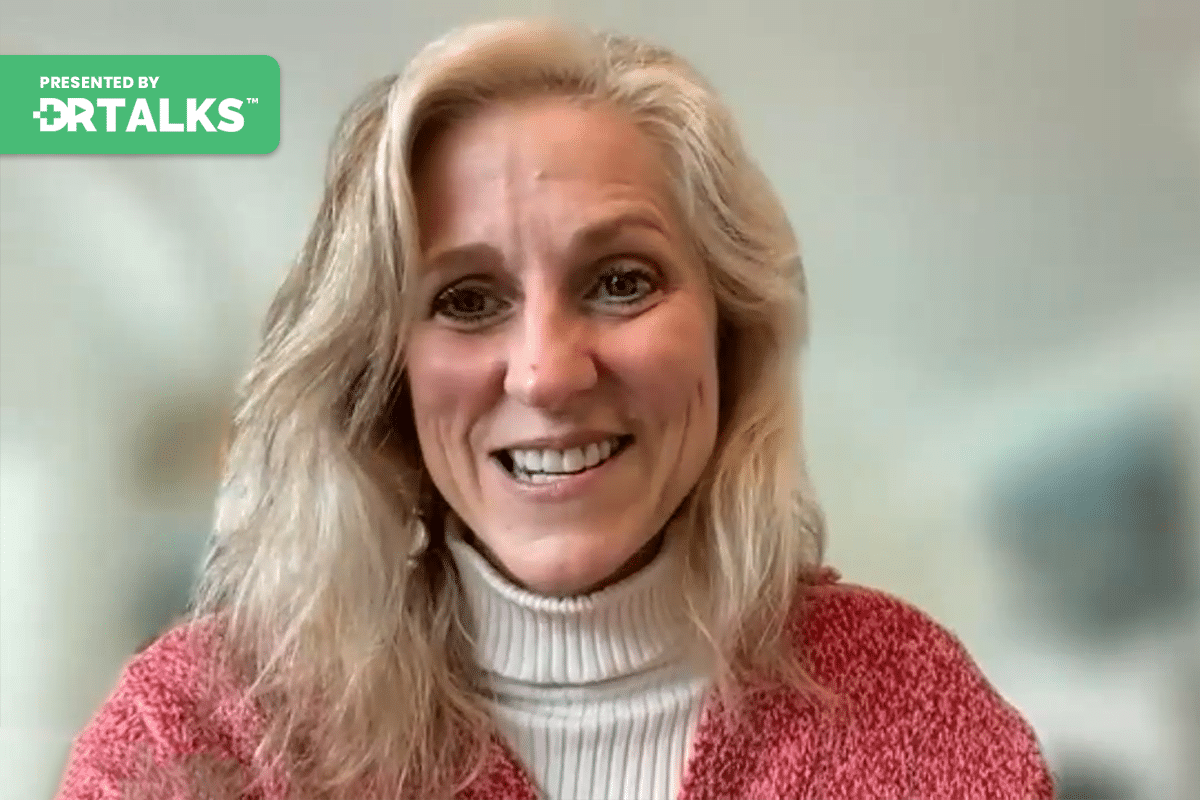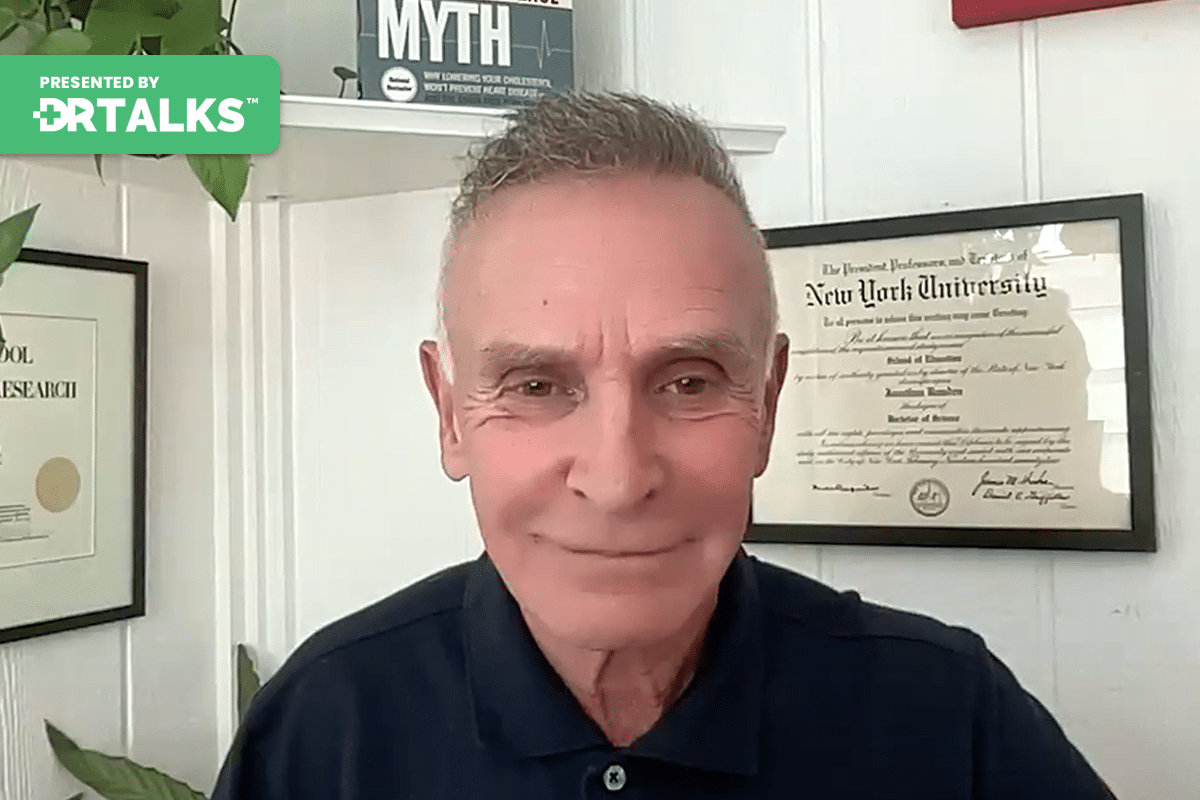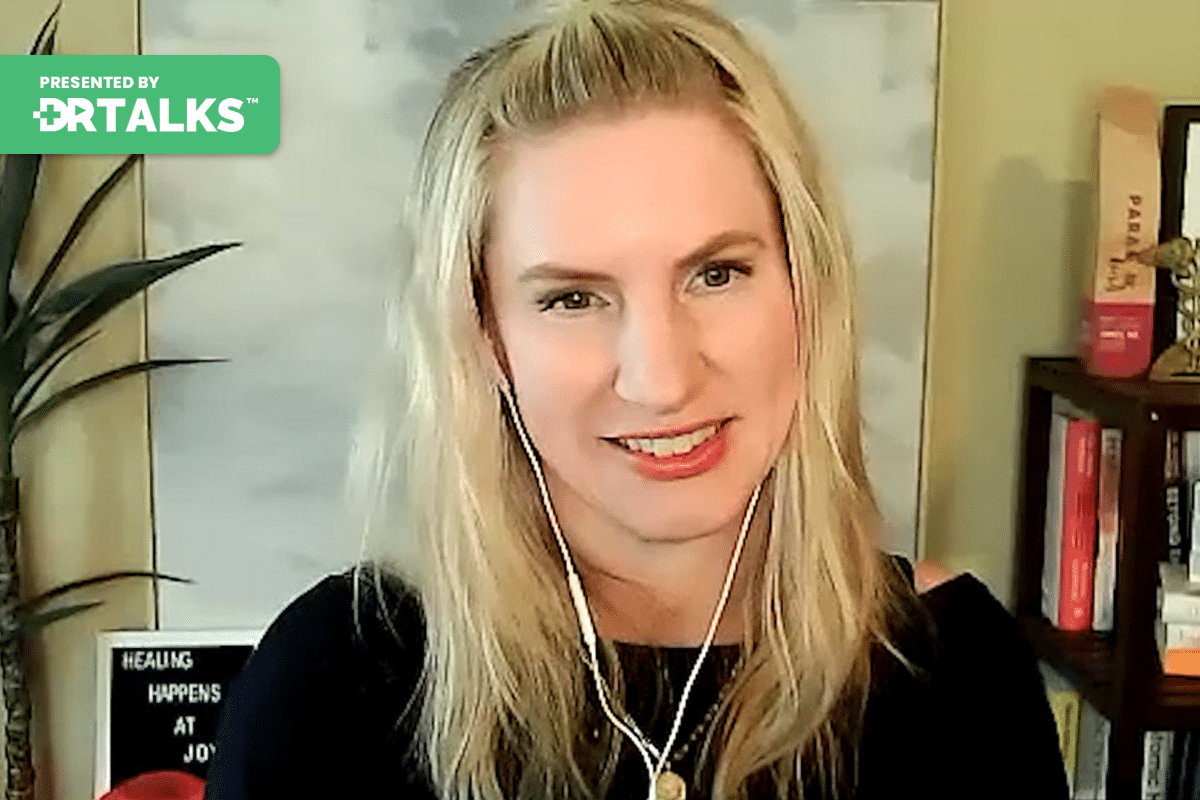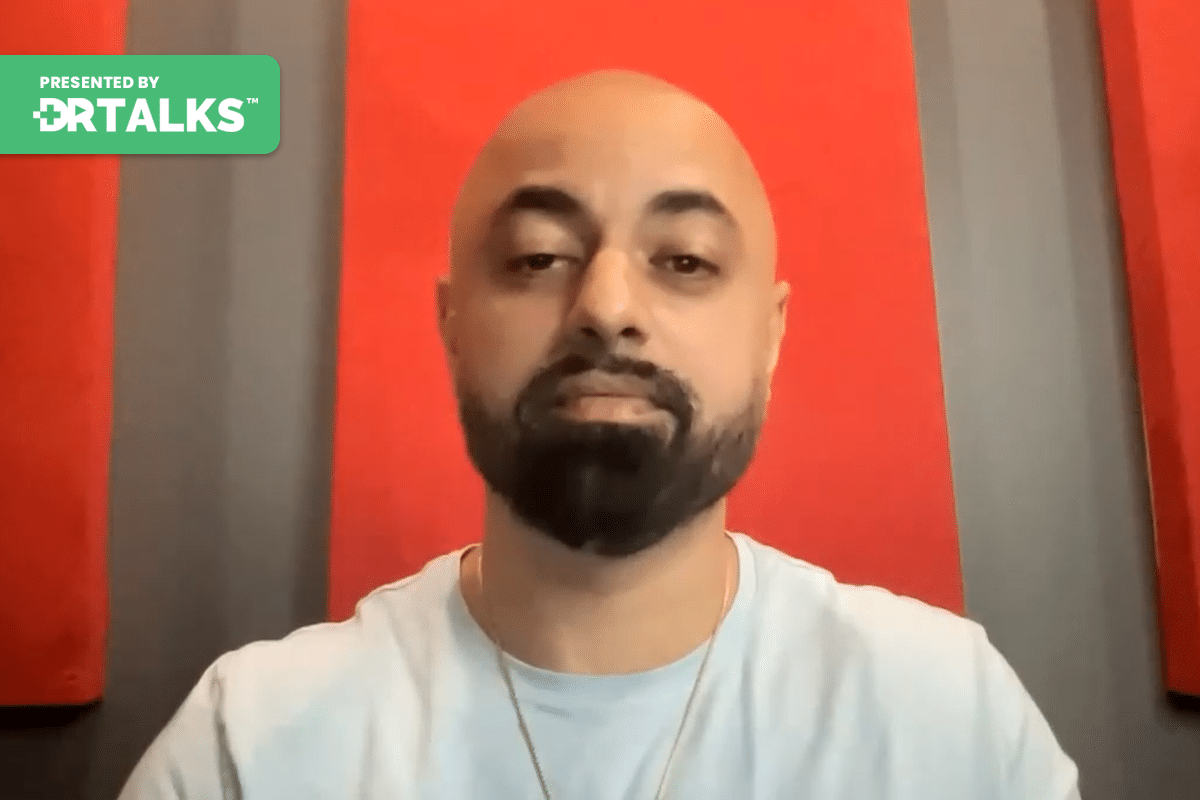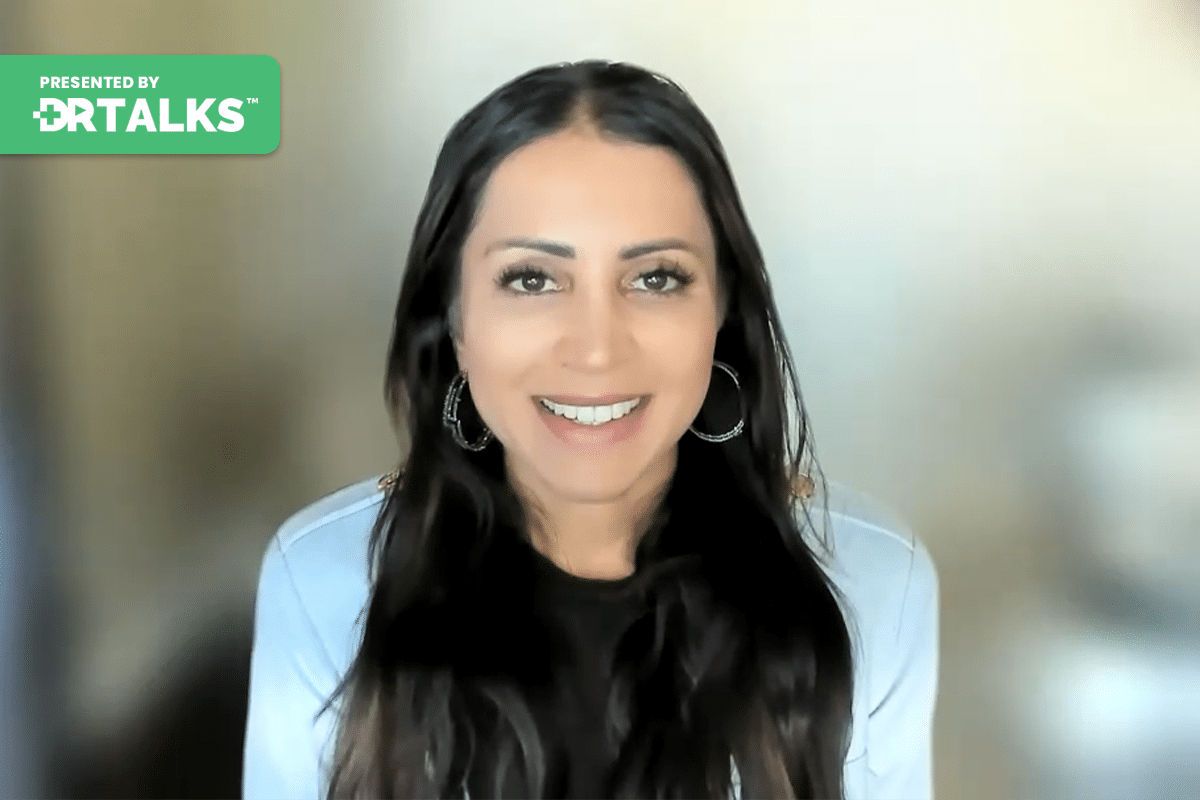Join the discussion below

Kashif Khan is the Chief Executive Officer and Founder of The DNA Company, where personalized medicine is being pioneered through unique insights into the human genome. With the largest study of its kind globally, The DNA Company has developed a functional approach to genomic interpretation overlaying environment, nutrition, and lifestyle... Read More

Felice Gersh, MD is a multi-award winning physician with dual board certifications in OB-GYN and Integrative Medicine. She is the founder and director of the Integrative Medical Group of Irvine, a practice that provides comprehensive health care for women by combining the best evidence-based therapies from conventional, naturopathic, and holistic... Read More
- Dive deep into the world of estrogens and learn how fasting impacts hormones differently at various stages of life
- Understand how to tailor your fasting routine according to your menstrual cycle for optimal hormonal balance
- Equip yourself with the knowledge to adjust fasting practices as you transition through different phases of life, promoting hormonal health
Kashif Khan
Welcome, everyone. We have exactly what you need and why am I saying that? Because there are so many conversations about fasting, so many conversations about weight, etc., there’s this consistent theme of, well, is there a difference for women? How do our hormones play a role? Why is it that some women can do it every day? Some women need to do it twice a week and they’re just variable outcomes. How do we hyperfocus and create a fasting regimen that considers things like our estrogen? We’re going to dive into that today with Dr. Felice Gersh. Thank you for joining us first of all.
Felice Gersh, MD
My pleasure.
Kashif Khan
Your belief is that there’s this relationship between fasting and estrogen, that we need to understand that there are some nuances there that make the protocols more specific. Before we even get into that, maybe break down for us, because you have so much experience, OB-GYN, this is what you do day in, day out, break down estrogens first because everyone thinks they know, but they don’t really know. There are various versions. Let’s start there and then we’ll get into the fasting part of it.
Felice Gersh, MD
Well, that is a good place to start because the poor estrogens are so confused. I do have some easy-to-sort-of think-about analogies. Estrogen is a family of hormones. It’s not a hormone. When my analogy is set, everyone knows that there are different kinds of fats and they have different health benefits or potential health harms. There was that evil fat that was manufactured called trans fat, which is supposed to be off the market, of course, because it was very harmful. It kept things from spoiling, but it also ruined your body. The whole concept of fat became, oh, fats are evil, don’t have fats, but there are essential fats in fact. That fatty acids are essential to life. That’s a similar thing that happened to estrogen. There are different types of estrogens and there are some types that are actually xenoestrogen. They’re not even human-made estrogens, they’re made by men. They’re chemicals that are estrogen receptor modulators in a very bad way. They’re endocrine disruptors, they get into the body and they disrupt the way estrogen can bind to receptors, how they’re manufactured, distributed, eliminated, detoxified, and everything. They’re confused with the human ovarian-produced estrogen called estradiol or the formal name 17-beta estradiol, which binds in a beautiful, balanced way with the different estrogen receptors. It’s an amazing life hormone, although it’s called a sex hormone. I have transformed its name into a life hormone because it’s really essential for the functioning of every organ system. There are receptors for estradiol on every single organ to make the bodywork as a whole united, look into the future for the health of that individual.
But there are other estrogens that could be made, for example, by fat tissue in the body, especially in a state of inflammation. It upregulates an enzyme that is present in fat that’s all over the body that can convert androgens, which are like male-type hormones, which can come from testosterone made in the ovary or the majority from precursor type to testosterone androgens like DHEA, DHEA-S that come from the adrenal gland and in fat tissue in a state of inflammation in the body. What’s produced is estrone. Estrone only binds to one type of estrogen receptor called the alpha receptor. That type of estrogen receptor is more like you can think of it as the on-switch to inflammation. Whereas the estradiol from the ovary that turns on an appropriate inflammation when needed also turns it off and promotes healing and resolution. We have an imbalance, an estrogen state when you have an inflamed body and you have a lot of body fat. In pregnancy, the placenta makes a totally different dominant estrogen called estriol. Then there’s the fetal estrogen. We won’t even go into what that’s called E4. There are these different estrogens, but they’re so confusing. A lot of times pharmaceutical estrogens are called estrogens like estrogen, ethanol, and estradiol from a birth control pill, which is a totally different formulation. What was given to most women in menopause for many years, it’s still even used, which is conjugated equine estrogens. The brand name is Premarin, which is derived from pregnant horse urine, which does not contain all these different types of horse estrogens that the horse is trying to eliminate from the body. You can see how massive confusion has arisen from just the word estrogen.
Kashif Khan
Yeah, my head is spinning right now. I thought I knew something, but there’s a lot more to know. This is why there’s so much complexity and confusion because people do walk around thinking in one word, one meaning, there’s so much more to know. When you try to answer a question, you perhaps are even asking the wrong question to begin with. Then you start looking at a whole other layer like, okay, let’s see, what is my progesterone all about? How does that play into this equation? It’s a whole other conversation to have. Now, given that landscape, that you painted, where is it that we see this challenge start, we’re fasting, there’s the protocol, the structure needs some nuanced uniqueness around hormones. What’s the trigger? What do we need to consider? What drives how we design their fasting?
Felice Gersh, MD
Well, we have to think of it a little differently, depending on the stage of life that a woman is in. If we start with the reproductive years, well, women who are making their own natural hormones. They’re not on a hormonal contraceptive like a birth control pill, we’ll leave that we can come back to. That’s like a whole separate category of women. The women who are having their natural menstrual cycles, you have fluctuations in the magical hormones. Estradiol is fluctuating throughout the whole cycle, and so does progesterone, they have the cycle. You don’t even make progesterone from the ovaries. How you fast will have an effect directly on the menstrual cycle and vice versa. The hormones will affect the outcome of the fasting. Like so many things in the body, it’s bi-directional. For example, if you do fasting and by fasting, you could say fasting that any time you’re not eating but there are so many different nuances to fasting. Let me say somebody, this is where the studies came in. These studies were actually funded by the NIH, the National Institutes of Health, back in the 1990s. It was a flurry of interest in this topic.
What happened after the whole horrible outcome from the Women’s Health Initiative, so much interest in doing research on women’s hormones kind of dissipated. But if you go back to the 1990s when it was so interesting, many people were looking at this issue, they did studies where they had women fast, completely water fast for two days, sometimes three days. That would be more like periodic fasting. What they found was that if they fasted during the first portion of the menstrual cycle, which is called the follicular phase, this would be before ovulation occurs. Guess what, in women who were normal weight that they often would stop ovulating and if they were underweight almost exclusively, they would stop ovulating. You don’t want to fast during that time frame. In women who were overweight, they didn’t always necessarily stop ovulating. These were women who were ovulatory, but they found that their peak of estrogen was diminished. It did affect how the hormones were produced by the ovary. But when the women did that same fasting routine like two or three days after ovulation occurred, this is called the luteal phase of the menstrual cycle. It didn’t affect ovulation in the subsequent cycle at all. But what it did during that cycle was it improved heart rate variability, which means the autonomic nervous system is better functioning. You have what we call a more vagal tone.
The body is basically in a calmer state. It helped women who had PMS where they had this kind of upregulation of the sympathetic tone of the autonomic nervous system, which is like the stress response, which of course is not a pleasant state to live in on a continual basis. It was actually amazingly calming. They felt better. Women who are having regular cycles, they need to be aware that they should only do their fasting if they’re going to be in the luteal phase. If women are trying to get pregnant, then for sure, 100% they should never do that type of fasting. In fact, I actually don’t recommend that any woman who is actually trying to get pregnant would do any kind of multi-day fasting because the nutrient sensors in the brain may shut down reproduction or like it happened in some of the women who were overweight. These were not massively overweight. They were just a little bit overweight. What happened is their estrogen spike, which is what induces and precedes ovulation, was diminished. That means that you may have a poor quality egg that’s being selected or you may not have proper ovulation and then you won’t have a good embryo made. You may also not have proper progesterone produced, because it turns out that that big spike of estradiol that’s produced that helps to initiate ovulation actually sets up the progesterone receptors so that progesterone, when it’s made in the second half of luteal phase, will function better. Of course, progesterone is essential for fertility, successful implantation, and production of healthy eggs. It’s really essential that to sustain a pregnancy, to have a pregnancy, you need to have healthy progesterone levels that require a high spike. So you can see where fasting has a big relationship.
When you have estrogen on board, you’ll have better results from your fasting. That’s why menopausal women may not have as good a result if they have multi-day fasting because estrogen in the form of estradiol, actually regulates some very key functions in the body which are not well recognized. For example, autophagy, which is like intracellular house cleaning on renewal that is really modulated or regulated by estradiol, and also programmed cell suicide, which happens, for example, at the end of a menstrual cycle when you’re purging the lining of the uterus, you’re also purging yucky, bad senescent cells of the body, these old cells that can develop misfolded proteins that can lead to cancer and also senescent cells, these old cells that promote inflammation. It’s estradiol that promotes cell suicide for these bad cells and fasting. We now know that short multi-day fasting can actually promote autophagy where you have cellular renewal and also the yucky cells of the body to kill themselves. To really have all these optimal benefits from fasting, you really need to have estradiol present. There’s so much that interrelates between these two systems.
Kashif Khan
You’re talking in the context of a longer 24-hour, 36-hour fast. We’re seeing a lot of the daily intermittent, condensed eating window. Is it the same consideration there that follicular plays could be a challenge?
Felice Gersh, MD
Though. There are some different things. I always recommend the daily type of fasting. We said like fasting day by definition is you not eating. There are different ways that you can fast. They have different benefits and they can have different relationships with our hormones. When you have what is often referred to as time-restricted eating, that would be fasting during the 24-hour time frame of the day. That would be some times where you don’t eat for several hours in a row and that is very good for the body. But then you have to say, well, which hours and how is that going to impact the hormones? It turns out that that miracle life hormone estradiol has receptors in the brain in what is called the suprachiasmatic nucleus. That’s a collection of neurons that sits on top of the optic nerve and can sense light and dark and also has nutrient sensors. It can tell if you’re eating or if you’re not eating, like fasting. That group of neurons is called the master clock and it sets the clocks of all the different organ systems in the body so that all the different organ systems are working in the same time zone. We do want to have what we call a regulated circadian rhythm. Circadian rhythm is the 24-hour rotation of our earth on its axis, which has somehow, by a miracle, has related to all lifeforms on earth, to have evolved on planet Earth, to have genes that are clock genes, they are all about survival because some creatures like humans are diurnal. We function metabolically in a very active way during the day. We’re very different metabolically at night.
Then there are nocturnal creatures like owls and rodents that become more active and metabolically functional in an active way at night. Well, these are programmed into our genes. We have our master clock then all the different cells of our body have peripheral clock genes, they all work together to keep everything working in a beautiful synchrony of the body. When we eat, it’s really important to recognize that we have to eat in accordance with our clock genes. Our digestive system, for example, is most functional during the early part of the day. We digest better and we have better motility of the gut. That’s why they talk about it like, it’s very healthy if you have a good big breakfast then you have a good bowel movement shortly thereafter that shows your digestive system is working. The other thing that’s very important is our insulin sensitivity is best in the first half of the day. When we eat food, we get a little bit of increase, hopefully not a gigantic spike of glucose, that the insulin that it takes to regulate that glucose, to get it out of the blood into the cells that need it to create energy, it takes less insulin. That’s good because we don’t want to have really high insulin because too much insulin can promote inflammation and fat, too much fat production, and fat storage.
You’re more likely to have better regulation of your glucose and insulin when you eat more of your food in the early part of the day. Now, if you’re eating like you think, Oh, I’m a night owl, but there are no humans that are nocturnal. There are some human variations, but we’ll never turn into owls. There really is no real night owl. But if you eat a lot of your food at night, your digestive tract is not going to be working optimally at that time. You’re more likely to get GERD, heartburn, indigestion, and bloating, you’ll end up having higher glucose levels, you’ll end up having bad insulin levels, and you’re more insulin resistant then you’ll be metabolically less healthy. Time-restricted eating is a very, very important thing because it allows time when your gut isn’t digesting, it’s resting, it’s repairing and the gut microbiome gets to reset. It’s important to realize that actually, this is so little recognized that estrogen having proper levels of the estrogen from the ovary. By the way, men should love estradiol. They don’t realize how much they have because all these things I’m telling about estradiol, they actually are happening in men, too. But the way men get estradiol is their testosterone is converted into estradiol in the tissues themselves. That’s called paraquat, for example, the male brain and the male master clock need estradiol, too. How does it get there? Men don’t have high levels of circulating estradiol, but they have high levels, hopefully of circulating testosterone. All estradiol comes from testosterone, 100%, not half of it, not a third of it, 100% of estradiol. The estrogen is produced by the ovary. That Wonderful Life hormone comes from testosterone. Testosterone is made in the ovary. It’s also male, of course, in male testes, and in the ovary, they have a special enzyme there, aromatase to convert the testosterone into estradiol in the ovary.
Well, this enzyme exists in the brain, too. The testosterone that men have circulating, it gets into the brain. Locally in the brain, it’s converted into estradiol so it can help keep the male circadian rhythm properly working. That’s why men having good testosterone is so important for their metabolic health, their emotional health, and their mental health. Every part of their body needs testosterone. A lot of it, of course, is because testosterone works directly on receptors, but also because testosterone can be converted all over the body in a man into estradiol. Estradiol is important for every human male and female, it’s critical to have these hormones, male, testosterone, female estradiol so that the master clock will function properly. Otherwise, if the word that we use is it drifts, it actually kind of just gets off the proper setting. Then that will affect how all the different fasting mechanisms are going to work because it’s going to reset like your proper clocks in your intestinal tract for digestion, the mitochondrial function may be off, and you want to create energy as well. All the different organs like the liver, they’re going to be awesome. To get all the optimal benefits of fasting, to get everything working properly in the body, you do need to have these vital hormones in order for all the systems to work in proper synchrony, perfectly together.
Kashif Khan
From listening to you, there’s a clear value and importance to estradiol regardless of male or female. Earlier on, you talked about some of the estrogen mimics that we don’t want some of the toxic estrogens. How do you play this balance? When you mentioned men, it comes to mind that a lot more men now are thinking about the endocrine disruption that’s happening, what they’re taking in, and how they’re becoming more estrogenized. But at the same time, there are some benefits for the rest of the day. How do you play that balance of maintaining the estradiol you need the healthy stuff while detoxing or clearing and eliminating the problematic stuff?
Felice Gersh, MD
Well, I’m so glad you brought that up, because we live in really a chemical soup of endocrine disruptors. Everything that’s made out of plastic, soft plastic, hard plastic. They have phthalates, these phenols, we know flame retardant, stain resistant products. There are so many heavy metals that people don’t realize lead, mercury, they actually are also endocrine disruptors. When you don’t have the proper endocrine hormonal system, it’s not just estradiol and testosterone. There’s this cascade of effects, like among thyroid and cortisol. All of these hormones work in this beautiful interplay with each other. When you get out of whack with one, you’re going to mess things up. If you don’t sleep properly because you don’t have the right estradiol, you’re going to mess with your cortisol, you’re going to mess with your melatonin, then that’s going to mess with your ovarian function, your testicular function. These endocrine disruptors are having dramatic effects on men with their sperm production, their testosterone level. For women with fertility, irregular cycles. It’s just a gigantic problem. It’s very much something that we all have to be aware of. Everyone should be really an environmentalist, both on a global scale and on a personal scale.
Like think about personal care products. What are you putting on your skin? Everything gets absorbed to some degree. What’s in your food, what’s in your containers that you’re storing food in, are you putting it in hot? When do you take out food? Do you let it sit in those containers that are lined with chemicals that get absorbed into the food and are endocrine disruptors? When this happens, what happens is that you can do a lot of things that are wonderful and you think you’re doing everything right, like you’re exercising, but you don’t build muscle properly because you don’t have the hormones to sustain proper function of your muscles. If a man has no testosterone and men know this if they’re exercising, they don’t have any testosterone, they’re not going to build the muscle. If you’re filled with endocrine disruptors that are preventing you from properly making testosterone, you’re not going to get the same benefit, the same thing with fasting, of all kinds of fasting, you’re just not going to get the same benefits if you don’t have the hormones, because there’s this interplay between cellular function on a molecular scale, mitochondrial function and so on requires having these proper hormones present. Mitochondria create energy, something that gives us life that’s like the spark of life is the creation of energy. Endocrine disruptors are destroying our fertility and our overall health. We need to think about what we’re eating, how we’re eating, how to restore our cleaning products. Everything we put on our bodies and get air purifiers, water purifiers, do everything we can, to what we call, lower the total body toxic load because it’ll allow your optimal results from your fasting routines, from your exercise routines and so on. Because unfortunately, when they talk about it takes a village, it does it takes a village to stay healthy. You have to look at all these different factors because you can’t just take out one thing like, Oh, I don’t have hormones, but that’s okay. No, it’s not okay. Or No, I don’t go to sleep at night. No, that’s not okay either or I eat at midnight every day. No, that’s not okay either. You just have to. Unfortunately, staying optimally healthy is hard work and we have to do it all.
Kashif Khan
You do it. It’s work. The more of these conversations we have, every piece is important, and we’re blessed where we can learn from people like you specific pieces and dive deep, but you start to see the picture is painted. It’s just very complex, a machine of multiple parts but you can’t focus on any one area because they’re all connected. The same thing with hormones where we’ve been talking about estrogens, we’ve been talking about estradiol for example. Another area that comes up commonly when we’re talking about fasting is, it’s going to stress my body, it’s going to cause me cortisol issues, I think it’s bad for my thyroid. These are conversations that we hear from patients, from clinicians. What’s that interplay between fasting and these two areas, cortisone and thyroid?
Felice Gersh, MD
One of the things that happens when you exercise when you fast is, if you do create what hopefully is just the right amount of stress. We know that the body has the mechanism to deal with stress. If you overstress the body, then it may not recover properly. You don’t want to do so. I really talk against many long days, like multi-day fasting because that is too much stress on the body. For example, the most that anyone should ever water fast would be four days. You just don’t want to keep water fasting. It does become too stressful on the body. If someone is recovering from a heart attack or a major surgery or some shock to the body from whatever reason, an accident or something, that would not be the time to do multi-day fasting of any sort. But when we’re talking about someone who is healthy, then their body can definitely benefit from these little stressors, whether it’s like a good workout, an exercise workout or a multi-day, but, periodically, you don’t do it day after day after day. You give your body a break. You always have to remember that to get the optimal benefit from, say, a multi-day fast, which would be a three, four days water fast or five day fasting mimicking diet. If you do that, you need to have the recovery phase, which is just like after exercise. You have a recovery phase, after fasting of a multi-day type, you have a refeeding phase. The refeeding phase is just as important as the fasting phase to get optimal results for the body. You do want to pick the right person to do such things as multi-day fasting because you don’t want to take someone who is fragile, who’s very underweight, that type of person who has tachycardia or cardiac arrhythmias.
Those are not the people that you would do multi-day fasting when it comes to time, restricted feeding or eating or what we so often talk about is intermittent fasting, where you’re fasting during the timeframe of the 24 hour day, where you have maybe a 12 or even as low as an eight hour window of eating, which is totally fine as long as you get in all the nutrients you need. It’s really timing your eating, not restricting your eating. You’re going to get all the nutrients you need, but you have all these benefits of giving your body this metabolic resting phase during the 24 hours. That is really something that virtually everyone can tolerate except the very ill or the very underweight, someone who’s trying to gain weight. Those are the only people that I say you should maybe have a snack with every 2 hours. Otherwise, snacking all during the day is going to keep your glucose going up, then your insulin goes up, then you’re going to have all these ups and downs, that actually isn’t good to have high levels of glucose and insulin on and off all day.
The people who have the most trouble with the time restricted eating where they get into a smaller window of eating during the day are people who do not have metabolic flexibility. That’s really important to understand that there are some people that don’t transition well from burning glucose to burning fat, that’s because they’ve been so carb heavy with these sugar foods that turn into glucose very readily that they keep having high glucose levels come into their body so their bodies never have to access their storage fat as an energy source. The body is amazing for survival. Human beings are around today because we are so good at surviving famines. That’s how we have not become extinct. That mechanism of transferring from burning glucose to burning fat should be seamless. You shouldn’t even feel it. You shouldn’t know it’s even happening. But for people who have this very bad state of metabolic inflexibility, they just don’t have the wherewithal with their metabolism, their mitochondria to convert from burning glucose to fat. They go through this little timeframe when they actually get hypoglycemic because they’re not really accessing their fat, yet they don’t have enough glucose because they’re not eating for a few hours or even a few days, like a couple of days. They go crazy. They feel I’m going to die. I must eat. That’s like those are the people who get, where they’re hungry and angry people. Because they’re like, Oh, my God, I’m famished. When is food coming? When are you serving dinner? Why is food not on the table yet? Those people need to realize the reason they’re having so much trouble is because they have this metabolic inflexibility. They need to work on it by detoxing their body from garbage food.
Okay, stop eating all those processed foods, those highly processed carbohydrates that turn into sugar so rapidly, get back to a whole foods organic diet where you eat food that does not rapidly go into your bloodstream as glucose. You eat like healthy fats. We talk back to fats. You don’t eat trans fat. You eat healthy fats in your diet. You eat complex carbs like whole grains. They’re not powderized. They’re not turned into flour. It would be wholegrain, meaning it would be like you cook it like rice, but it would be the ancient grains like buckwheat and millet and quinoa, amaranth. A lot of the grains people like, I never heard of that kind of grain. But those are the ones that help to actually control blood sugar. You cook them and eat them like old fashioned, slow cooked oats or steel-cut oats, that type of thing. Those are okay as carbs, then lots of vegetables, with the antioxidants, polyphenols and all of those kinds of things. Then work on all the other lifestyle habits and you can restore your metabolic flexibility so that it won’t be a problem. But in terms of any kind of activity, yes, it can be overdone.
People can over fasts, people can over exercise, people can do all kinds of things to stress their body. You have to do it just right so that you get just the right amount of stress, so that you trigger the right mechanisms like your body. If you don’t do a multi-day fast like a three, four day water fast or the five day fasting mimicking diet, your body won’t go through that little stress that will cause it to actually do, I call it major rehab because it’s only under this stress situation that you’ll trigger certain cellular mechanisms like autophagy, cellular intracellular cleansing, where you take old structures in the cell, you break them down, too. They’re like essential parts, like amino acids, fatty acids, then you reconfigure new structures in the cells. You won’t kill off old yucky cells unless you actually do some stressing of the body. If you continually eat, eat, eat, nonstop, eat these life saving, amazing, like healthy longevity mechanisms will never be triggered. Fasting or anything can be done wrong, but done correctly, it is amazing. We don’t have proof of extended life in humans, but they have it in rodents. Because how do you do studies on longevity in terms of extending lifespan for humans? That’s almost impossible, but you can do it for rodents. They found that by doing proper fasting, you can extend the life, the whole, the lifespan of rodents. Even if you’re not going to extend life, what you extend is health. That’s where the emphasis now is on health span. That you live as long as you can, but you live in an optimal state of health. I have to emphasize so dramatically that done properly, you can actually have it such amazing metabolic health, restore your metabolic flexibility, have optimal health span potential when you do fasting correctly, live with your circadian rhythm, recognize that hormones matter, you add in all the other important lifestyle ingredients for health, and you can really optimize the quality of your life.
Kashif Khan
You’re inspiring me to the point where I feel guilty that I even have lunch ready today, like I’m going to skip dinner.
Felice Gersh, MD
Now eating, remember, refeeding is essential to eat after. Everything in life, whoever came up with this little expression of everything in balance, I don’t say everything in moderation because chemical, endocrine disruptors, we don’t want them even in moderation, but everything in balance is really the way to go. The Chinese got it right. I don’t know how they were so brilliant so many thousands of years ago with their yin-yang. You have the hot, the cold, the push, and the pull, you fast and you eat, and you always do it in the right balance.
Kashif Khan
Yes. Another thought where I mean, it’s not a context we talk about a lot, but you talk about in general, amazing stuff about how to fast in the female context, considering your estrogens. Then you touched on, now that you’re menopausal, there are some different considerations. There’s this gray area of perimenopause where a lot of women say, Well, I don’t get answers because I’m not there, but I don’t feel like the way I used to feel. What do I need to do differently, if anything?
Felice Gersh, MD
Well, first off, I just want to say that, I am a huge proponent of hormone replacement therapy to use hormones, the human bioidentical hormones at physiologic levels to somewhat, we can’t really do it exactly, but somewhat replicate the optimal hormonal rhythms of a reproductive, healthy young woman in menopausal women. You’re right, the biggest question mark is the perimenopausal women, those transitioning women where hormones can be in just a chaotic state. They can go too high, then they can go too low. But the trajectory is always downward. It’s like it goes up but then goes down. Every time it’s like going down, like the worst stock market, it goes down, down, down. But occasionally you get a spike. Along the way, just to make you crazy. But the bottom line is that I believe that women in menopause should have hormone replacement because their ovaries cease to make any estradiol or progesterone. I believe in supplemental hormones. It’s replacement in menopause and it’s supplemental hormones for women that are in the transition or perimenopause. That can really help. I do a lot of testing like I love data. You deal with testing. I love data because it allows us to make informed decisions rather than just guessing. I will often do menstrual mapping on my women who are still cycling, but they don’t feel right. I mean, nothing feels right. They’re not sleeping right. They can’t remember words. This has actually been documented that there’s a word-finding problem and it’s always nouns. Like you can remember adjectives and verbs, but you can’t remember nouns. It’s like, what was that person’s name? What was that thing? Where were we? It’s like they feel like they’re getting demented. The reality is that there is a problem here. It’s a cognitive problem. Mood swings as women transition during the perimenopause, their risk of anxiety and depression in a woman who never had a problem, doubles.
In women who had a prior problem like say they had postpartum depression or they had previous really bad PMS, or they had other anxiety depression issues. Their risk of having a mood disorder when they’re transitioning goes up four times fourfold. Women in their forties, it’s unbelievable how many percentage-wise they’re on anti-depressants and anti-anxiety pharmaceuticals. That’s the solution. That’s the go-to. It’s like, we’ll just give them all SSRI and anxiety pills and sleeping pills because sleep becomes very disrupted again because remember, once you recognize that estradiol, this life hormone from the ovaries works in the brain and it works in the master clock, you have disruption of mood, memory, and sleep. All this is everything that has to do with the neurologic system, including the autonomic nervous system. so they can regulate things like pulse, temperature, and so on. They get night sweats, hot flashes, tachycardia, and they go to the cardiologist. It’s like I’m having palpitations. It’s like the cardiologist never recognizes it. Well, you’re having hormonal imbalances. No, they put them on beta blockers. It’s like the root cause is never looked at or thought about. But if you give women a baseline of estradiol and progesterone, if they need it by looking at what’s happening with their cycle, you can dramatically improve the quality of their life. We know that bad things are happening not just in the brain but in the cardiovascular system. You can already start increasing the development of vascular plaque formation during the perimenopausal years and women during those years preceding the official end of the cycles because by definition menopause is 12 consecutive months without any bleeding.
But that’s totally arbitrary because the process of ovarian aging is a many year process. It’s not like you cross the finish line that’s arbitrarily thinking about the hormonal changes as period changes and only period changes when it’s really a life total body change. Women start losing bone, for example, their bone density will go down and can go down significantly during the perimenopausal years. They can also have problems with their joints. Joint pain is very common. They get inflammation in their ligaments and tendons because those are all estrogen-dependent structures like everything in the body. By giving supplemental hormones, appropriately given, it’s just supplemental to try to help the brain with the sensors in the brain, for the hormones to keep from creating these gigantic fluctuations, because the brain says too little estrogen. It puts out through the pituitary high amounts of the gonadotropin, the FSH, and LH. Those are hormones from the pituitary that tell the ovaries to make more estrogen, while during the perimenopausal years, the ovaries can still make estrogen. They’re just less capable and they become less functional. But if they get this big push from the pituitary, they can have this giant surge of estradiol coming out. That’s when they have migraines suddenly like what’s happening to me, they have fluid retention and breast tenderness. But by giving this, will save baseline amounts of estradiol, it can help to prevent these giant fluctuations, which, by the way, the most common time of a woman’s life for having twins is the perimenopausal years because they can have hyper stimuli to their ovaries. By having so much of this gonadotropin, they actually are still having eggs, but with diminished amounts, they can put out two eggs and then they get twins. Everyone beware. You can have twins when you think you’re just about at the end of your fertility, lifeline. It’s a very challenging time, that is perimenopausal time. It’s not healthy and it’s not treated, there’s no roadmap for anything for treating this group except tranquilizers, sleeping pills, and antidepressants. That is not getting to the root cause. By giving these foundational hormones, we can dramatically change the whole trajectory of the perimenopause and all the years that follow in the menopause.
Kashif Khan
Just to delineate a little further, when you say, hormone replacement, menopause, and post and you say supplemental during period, what do you mean? Is it a dose question or is it a different product?
Felice Gersh, MD
It can be a dose question, yes. Because typically, I will give less of the hormones to a premenopausal woman. Glad you brought that up. It all has to be individualized and these are moving targets. Everything can be in flux. But because the ovaries are making estrogen still estradiol and the and still progesterone, they’re actually cycling, often the cycles get shorter like a typical menstrual cycle is 28 days. Often those will get fewer, fewer days. By doing menstrual mapping, you can see exactly what part is getting shorter. Often it’s the luteal phase. They make less progesterone for fewer days, which is why their cycles get shorter. Eventually, it goes from shorter like menstrual periods to the actual cycle. Instead of 28 days going out to 23 days, even 21, then after a while they have these cycles, but they become more spaced out. Maybe instead of getting a period every month, they have them every other month or every third month. Everyone is unique in how they transition, but these are very common types of themes for the transitional years.
When women start spacing out periods, they go like two, three months without a period. Those women often will need higher amounts of estrogen and progesterone because we want to get them to have a period on a monthly basis, if possible because that’s healthier for their bodies. Everything has to be, especially the menopausal women are actually easier to treat with hormones than the perimenopausal women because in menopause they just don’t make any. Whatever they get, they get from you. But you just have to figure out how to get it in to get the right levels because we give a lot of our estrogen now we give it to the skin. The skin never evolved as a hormone-delivery system. It’s actually supposed to be a barrier, supposed to keep things out. But we know that some people’s skin is like a sieve. Things just get right through it and everything can get through it to some degree. But it varies from woman to woman. It’s like an adventure because treating women in menopause with hormones, because every woman will absorb the hormones differently through her skin, sometimes you have to try different locations, thinner skin, thicker skin and so on, different areas of the body to get it just right. But the perimenopause, they have all of those issues on top of the issue of this moving target of fluctuating hormones.
You really have to work one on one. You have to do everything with a little bit of a sense of humor because it is a challenging situation. There is no clear roadmap. You have to treat each woman individually, recognize that she’s still changing, then you have to see what’s happening and work with levels and work with symptoms. This is really the art of medicine, it is helping women in these situations. It’s so sad that our conventional medical world is really ignoring this gigantic set of women that are going through this phase of life. It’s unavoidable. People can choose a lot of things, but they can’t. If you’re a woman, you can’t choose whether you’re going to go into menopause or not. You can’t meditate your way out of menopause. You can’t exercise your way out. You may delay it for six months or something, but you’re not going to prevent it. It’s universal for women. It’s 100% universal. Does it matter your ethnicity, your continent, or anything? Every female will go through menopause and it’s such a big metabolic shift in a woman’s body, hormonal shift, and metabolic shift. It all goes together and it’s poorly recognized for what it means.
Getting back to fasting, if you don’t give women the proper hormonal balance during these years and all through the menopausal years then they try doing different appropriate types of fasting for their age group, like really elderly people over 65, 70. We don’t really have good data on safety for multi-day fasting, but we can always go with time-restricted eating or intermittent fasting, even if you’re old and frail. Once again, if you are very frail, if you are very underweight, then those are the people who have to eat more frequently, and so on. Every person has to be uniquely evaluated. But you can get all these benefits as you age and go through menopause. You will never get optimal benefits, though, if you don’t have the right hormone balance in your body. As women, we need it, and men of course. I’m a big fan of men when they need to have testosterone replacement. But by the way, men should not have testosterone when they’re young because they have very low testosterone, but they’re young, then they need to be worked on to find out, like their level of toxins, their nutritional status, inflammation status, because once you start giving men testosterone, their testicles may never make this testosterone again. It can suppress them permanently. That’s why there’s no birth control shot of testosterone for men, because they never, some men will never come back. I don’t think men should really go on any testosterone supplementation unless they really have elevations of their gonadotropin. It shows that they have the equivalent of menopause. Like the end organ is not making testosterone, not that it’s a hormonal imbalance because of endocrine disruptors, bad nutrition, stress, and that type of thing, which can all affect men’s testosterone. Men beware, the clinics that give out all these testosterone shots to young men, that is really not a good idea. But for older men, 50 plus, sometimes no matter what you do, you can’t get them to make more testosterone, but they need it. Those are the men that can really benefit from testosterone replacement therapy.
Kashif Khan
Mm.. Yes, for sure. We’ve seen that so many times with young men that are struggling, and then it becomes a dependency. This is fascinating because you’ve broken down things. You’ve taken stuff that’s complex and often burdensome and made it so easy to understand, which, I’m thankful for because it’s plugging a big gap for everybody, which is I want it fast, I want to feel great. I have to consider hormone replacement, all of these variables. You piece that all together and showed us how it’s easy to understand. Thank you. I’m sure there are years and years and thousands of patients worth of experience behind why you make it sound so easy. Thank you. Do you work with patients? How do people reach out to you if they want to learn more?
Felice Gersh, MD
I do. I’m a really old-fashioned doctor. I still have a brick-and-mortar practice where I see patients in person, I do exams, I do all that kind of thing. My practice is called the Integrative Medical Group of Irvine. It’s in Orange County, Southern California. I can do a fair amount of telemedicine as well. I love seeing patients one on one. I also try to put out some Instagrams on my Instagram live. I have three books right now: PCOS SOS, PCOS SOS Fertility Fast Track, and my newest is Menopause: 50 Things You Need to Know. Those are easily obtained on Amazon. I am looking forward to seeing anyone out there who would like a one-on-one type of medical adventure with me so that we can help every woman to optimize their health as best as possible.
Kashif Khan
Thank you. That’s amazing. Yes, I would advise anybody. Jump on the books. There are three certainties in life. There’s death, taxes, and menopause.
Felice Gersh, MD
For a woman. Absolutely.
Kashif Khan
You might as well read the book and be prepared. Thank you for joining us today. Thank you for taking the time. Very fascinating. Again, you take in something that has been a gray area and make it easy to understand and thankful for that.
Felice Gersh, MD
My pleasure.
Downloads



